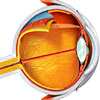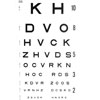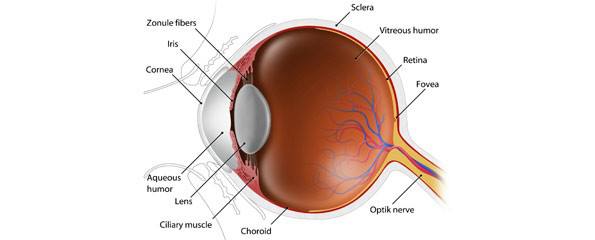Glaucoma: An Overview
- The eye and vision
- Glaucoma
- Eye examinations (visual field testing)
- Nutrition for healthy eyes
- How to have healthy eyes
- Office ergonomics: preventing eye strain
The eye and vision
 | The eye is the organ that allows us to see. The eyeball itself is a sphere spanning approximately 24 mm in diameter. It is suspended in the bony socket by muscles controlling its movements, and is partially cushioned by a thick layer of fatty tissue within the skull that protects it during movement. |
For more information, see The Eye and Vision.
Glaucoma
 | Glaucoma refers to a group of disorders affecting the eyes. These disorders are characterised by increased pressure within the eye that causes damage to the eye tissues and the optic nerve, which is the main nerve controlling vision. |
For more information, see Glaucoma.
Eye examinations (visual field testing)
 | An eye examination, also known as visual field testing, is the process of having the eyes examined for visual field defects or for monitoring changes in vision. Having the eyes examined regularly is the best way to detect vision changes and ensure that the conditions underlying changes in vision are diagnosed early. |
For more information, see Eye Examinations (Visual Field Testing).
Nutrition for healthy eyes
 | The eyes, like all other organs of the body, depend upon nutrients, vitamins and minerals, to maintain their health and proper function. A number of dietary factors influence the progression of cataracts. |
For more information, see Nutrition for Healthy Eyes.
How to have healthy eyes
 | Eyes can be damaged if they are exposed to too much light, toxic substances such as chemicals in cosmetic products, or certain environmental hazards. There are many ways in which the eyes can potentially be damaged, but also many preventative measures that can be taken to protect against eye diseases and/or disorders. |
For more information, see How to Have Healthy Eyes.
Office ergonomics: preventing eye strain
 | The use of computers amongst office workers has resulted in an increase in health disorders associated with computer use, the most common of which are eye and vision problems. While eye health problems related to computer use are usually temporary, they cause significant discomfort to computer users and are largely preventable. |
For more information, see Office Ergonomics: Preventing Eye Strain.
Dates
Posted On: 15 April, 2010
Modified On: 30 March, 2017
Tags
Created by:

 Login
Login














